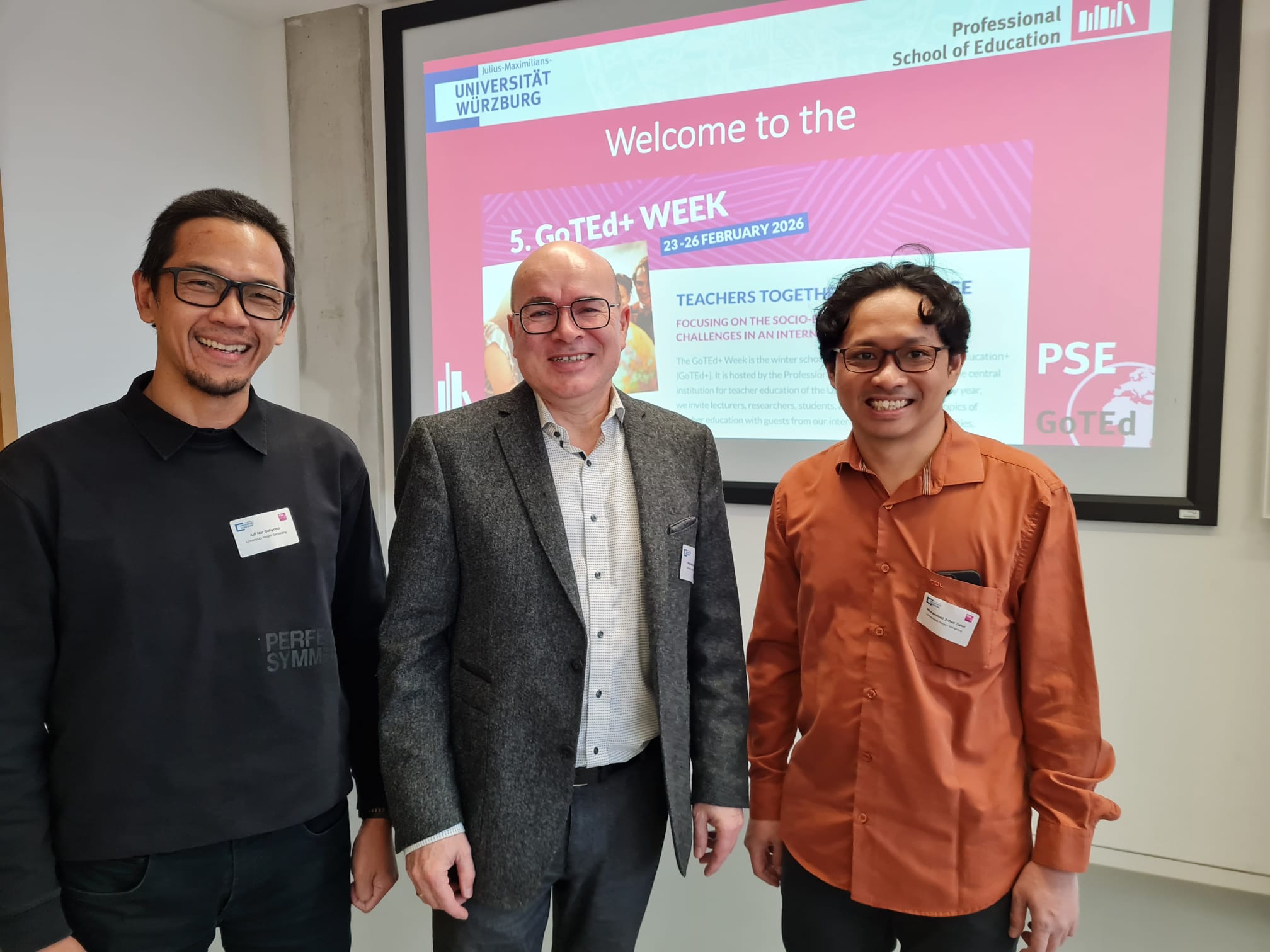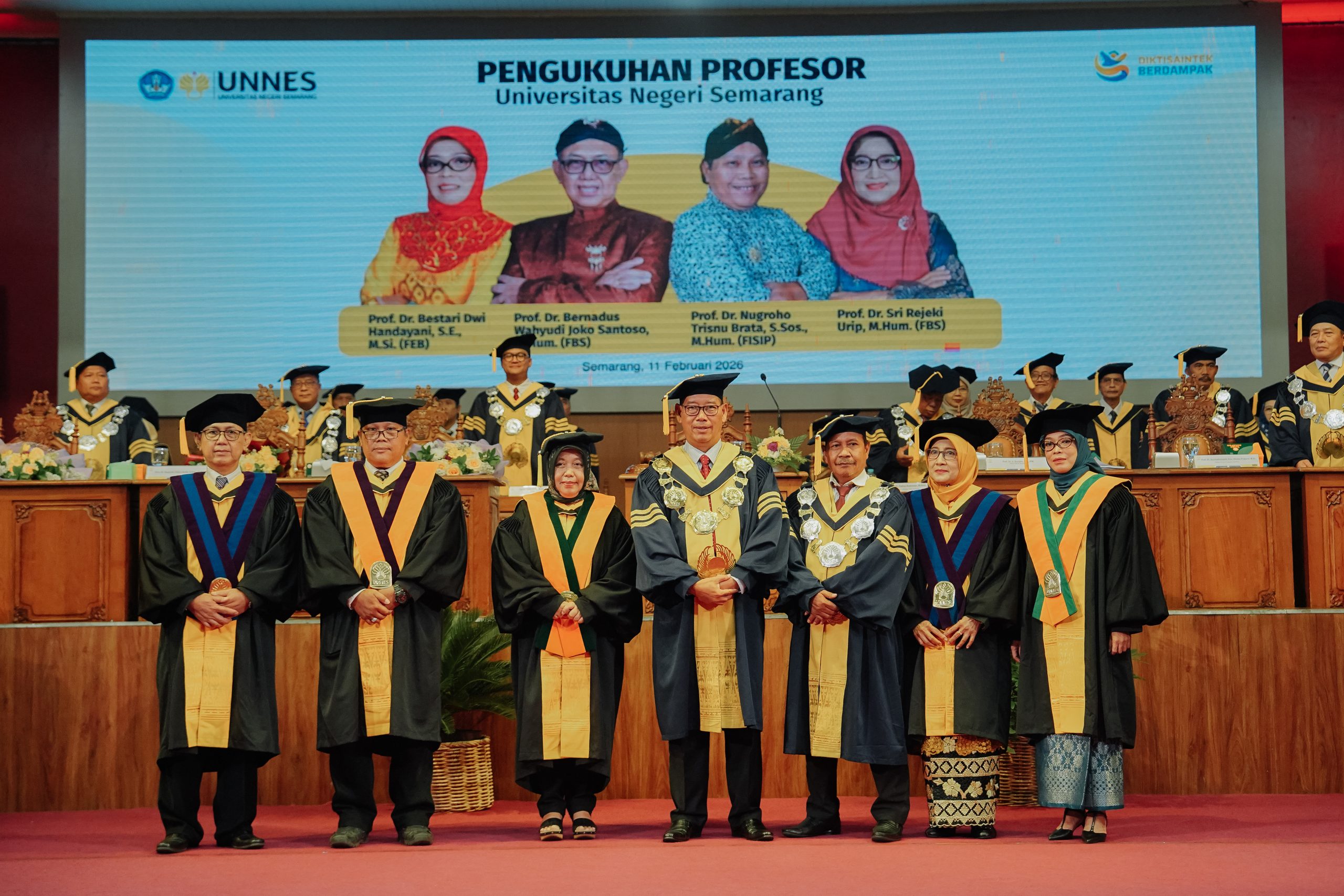
Research in mathematics education level in Germany began in the 1930s. At once there were not many empirical studies in research in the field of mathematics education, but more papers discussed the practice of mathematics and theories about refining knowledge. This was stated by Dr. rer nat Joerg Zender in a public lecture held through a video conference on Monday (22/04). Zender who is a project leader at the Applied University of RheinMain, Germany gave public lecture to lecturers and students in Indonesia using video conference technology.The public lecture was organized by the Center for Research in Mathematics, Technology, and Education, UNNES Mathematics Department in the Senate Room of UNNES was attended by 73 participants both lecturers and students. However, this public lecture was also attended by students and lecturers from other universities, such as: Ahmad Dahlan University (UAD) Jogjakarta, Universitas Negeri Padang (UNP), and STKIP Muhammadiyah Pagaralam Palembang.Zender also said that, at present, researchers in the field of mathematics education in Germany pay much attention to the topics of study relating to technology, modeling, higher education, and language and mathematics.He gave an example of the results of his research which focused on the use of technology in outdoor mathematics learning. This research is part of a large project run by IDMI Goethe University Frankfurt Germany, the MathCityMap-Project, led by Professor Matthias Ludwig. In this project, an old concept of math trails combined with the use of mobile technology for learning mathematics.The purpose of this lecture series, according to Dr. rer nat Adi Nur Cahyono as the event coordinator, to provide broader insights and knowledge about trends and developments in mathematics learning and research in the field of Mathematics Education abroad.This activity is expected to be useful for lecturers and students who take part in the lecture as reference and inspiration in designing and implementing studies in the field of Mathematics Education.Inviting experts from other places or coming to them requires time and money, with the use of technology, lectures with experts in other places even in other countries can be easier and goals can still be achieved. Therefore this lecture was carried out through video conferencing which was technically supported and facilitated by the UNNES ICT Unit. Faza Lutfiyana (Student Staff)
23
Apr



